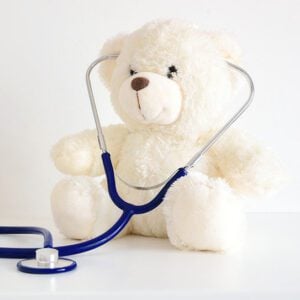March is Poison Prevention Awareness month. More than 2 million poison cases are reported to poison control in the United States annually. Prevention is the key to avoid poisoning. Many common products in our homes such as detergents, cleaning solutions, charcoal lighter fluid and insecticides can have devastating impact if not handled appropriately. Medications in the home can be toxic to children. Our pets are also at risk of accidental poisoning from many common products in our homes.
According to national statistics 87 people per day die from unintentional poisoning. Children account for the majority of poisonings. Teens are vulnerable due to high-risk behavior when using household products to get “high”. All substances in the home and those used outside of our home should be treated as a potential poisoning agent. Storage and labeling of these substances are key to avoiding unintentional poisoning.
How can we prevent poisoning? According to the Centers for Disease Control almost every poisoning is preventable. Tips from the CDC for protecting family from unintentional poisoning include the following:
- Keep chemical products in their original bottles or containers.
- Do not use food containers, such as cups, bottles, or jars, to store chemical products, such as cleaning solutions or beauty products.
- Keep all drugs in medicine cabinets or other childproof cabinets that young children cannot reach.
- Never leave children alone with household products or drugs.
- Do not leave household products or drugs out after using them. Return the products to a childproof cabinet as soon as you are done with them.
- Read and follow directions for application and storage of all household products. There are also specific steps you can take to prevent carbon monoxide poisoning.38
- Have heating systems, water heaters, and all other gas-, oil-, or coal-burning appliances serviced by a qualified technician every late summer or early fall.
- Install battery-operated CO detectors in homes, and check or replace batteries when changing the time on clocks each spring and fall. If a detector sounds, leave the home immediately and call 911.
- Seek medical attention promptly if CO poisoning is suspected and if you feel dizzy, light-headed, or nauseated.
- Do not use a generator, charcoal grill, camp stove, or other gasoline- or charcoal-burning device inside the home, basement, garage, or outside the home near a window.
- Never leave a car or truck running inside a garage attached to a house, even if the garage door is left open.
- Do not use a stove or fireplace that is not vented to the outside.
- Do not use a gas cooking oven for heat
What to do if you suspect poisoning:
- Call 911 if the victim is unconscious or having difficulty breathing.
- Remain calm. In Illinois and Wisconsin, the poison control number is 1-800-222-1222
- You can also text for non-life-threatening emergencies — Text POISON to 787878
Illinois poison control website also offers a website for parents providing advice for non-life-threatening situations:
www.illinoispoisoncenter.org/my-child-ate
Take some time this March to check around your home, garage and yard to ensure it is safe. Ensure all medications are out of reach of children in the home. Dispose of chemicals that you are no longer using. Preparation this month will provide prevention of unintentional poisoning in the future.
Additional Resources:
- Health Resources & Services Administration. https://poisonhelp.hrsa.gov/
- Illinois Poison Control Center. https://www.illinoispoisoncenter.org/
Picture of America Poisoning Face Sheet. https://www.cdc.gov/pictureofamerica/pdfs/picture_of_america_poisoning.pdf



